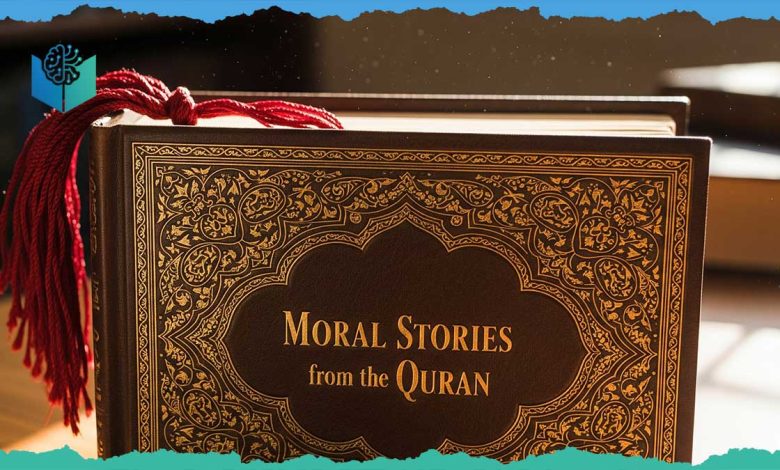Moral Stories from the Quran

The Quran is not merely a book of laws or theological principles; it is a profound guide for humanity, filled with rich narratives that offer timeless wisdom and practical Quran life lessons. These moral stories from Quran are designed to inspire, caution, and illuminate the path to a virtuous and fulfilling existence. Far from being mere historical accounts, each quran story serves as a powerful beacon, offering profound insights into human nature, divine justice, and the consequences of our choices. This article will explore five key narratives from the Holy Book, extracting actionable insights and demonstrating how these Islamic ethical stories provide invaluable Quran guidance for everyday life, offering deeper understanding about Islam.
1. The Story of Prophet Yusuf (Joseph): The Power of Patience and Forgiveness
The story of Prophet Yusuf (Joseph), told completely in Surah Yusuf, is a fantastic tale. It perfectly shows the importance of patience and forgiveness, even when facing huge difficulties.
Enduring Betrayal with Steadfastness
Yusuf’s journey begins with the painful betrayal by his own brothers, who, out of envy, cast him into a well and later sold him into slavery. This act of profound malice could have led to despair, but Yusuf’s response was one of unwavering sabr (patience).
- Lesson: Life inevitably presents us with betrayals and injustices, often from those closest to us. The story of Yusuf in Quran teaches us that true strength lies not in immediate retaliation, but in enduring trials with patience, unwavering faith, and trust in divine justice. This resilience helps us navigate difficult relationships and unfair situations without losing our inner peace.

Forgiveness in the Face of Power
After years of slavery and unjust imprisonment, Yusuf rises to a position of immense power in Egypt. When his brothers, unknowingly, come to him seeking aid during a famine, he has every reason to exact revenge. Yet, he chooses forgiveness.
- Lesson: When we are wronged, especially deeply, the desire for revenge can be overwhelming. Yusuf’s ultimate act of forgiveness, even when he held all the power, is a powerful reminder that forgiveness frees both the wronged and the wrongdoer. It promotes healing, reconciles relationships, and demonstrates a higher moral character, making it a cornerstone of Islamic ethical stories.
2. The Story of Prophet Musa (Moses) and Khidr: Trusting in Divine Wisdom
The brief yet enigmatic quran story of Prophet Musa’s encounter with Khidr (a righteous servant of God, mentioned in Surah Al-Kahf) is a profound lesson in understanding that divine wisdom often operates beyond human comprehension.
Events Beyond Immediate Understanding
Musa, eager to learn, accompanies Khidr on a journey, witnessing three seemingly perplexing acts: Khidr damaging a boat, killing a young boy, and rebuilding a crumbling wall without compensation. Musa, unable to grasp the reasoning, repeatedly questions Khidr, despite promising patience.
- Lesson: We often encounter situations in life that appear unjust, illogical, or even detrimental to us or others. This Quran life lesson teaches us that our limited human perspective cannot always grasp the larger divine plan. Events that seem bad might be preventing greater harm or leading to a future good we cannot foresee. It fosters humility and encourages us to trust in God’s ultimate wisdom and justice, even when things don’t make sense immediately.
The Unveiling of Hidden Truths
Only after the journey does Khidr reveal the hidden wisdom behind each act: damaging the boat saved it from being seized by a tyrannical king; killing the boy prevented him from becoming a disobedient tyrant to his righteous parents; and repairing the wall protected a treasure belonging to orphans.
- Lesson: This narrative encourages us to look beyond superficial appearances and trust that there is often a deeper, benevolent reason behind difficult circumstances. It highlights the importance of faith and the understanding that true knowledge is with Allah, a vital piece of Quran guidance.
3. The Story of Qarun: The Perils of Arrogance and Love of Wealth
The quran story of Qarun (Korah), a contemporary of Prophet Musa, as narrated in Surah Al-Qasas, serves as a stark warning against the dangers of excessive wealth, arrogance, and ingratitude.
Arrogance Fueled by Riches
Qarun was immensely wealthy, possessing treasures whose keys alone were a heavy burden. Instead of being grateful to Allah or using his wealth for good, he became arrogant, attributing his riches solely to his own knowledge and effort, denying God’s grace.
- Lesson: This Islamic ethical story warns against the intoxicating power of wealth and success. It teaches that attributing all one’s achievements solely to oneself, without acknowledging God’s blessing, leads to arrogance and ingratitude. It’s a reminder that all possessions are ultimately trusts from God.
The Earth Swallowing Qarun
Despite warnings from his people to not exult in his wealth and to use it righteously, Qarun persisted in his arrogance. As a result, Allah caused the earth to swallow him and his vast treasures.
- Lesson: The ultimate fate of Qarun vividly illustrates that arrogance and excessive attachment to worldly possessions can lead to catastrophic downfall. True success is not measured by material wealth alone, but by righteousness and humility. It reminds us that worldly gains are fleeting and that ultimate accountability lies with Allah, a crucial piece of Quran guidance for our financial dealings and attitudes.
4. The Story of the People of the Cave (As-hab al-Kahf): The Importance of Holding onto Faith
The Quran story of the People of the Cave, found in Surah Al-Kahf, tells of a group of faithful young men who escaped oppression to safeguard their belief — and whom Allah kept safe by putting them into a miraculous sleep for centuries.

Escaping Persecution for Faith
In a time when their community was compelled to worship idols, these young men bravely declared their monotheistic belief in Allah. They took shelter in a cave to protect their faith and escape oppression.
- Lesson: This Quran life lesson underscores the paramount importance of prioritizing one’s faith, even in the face of severe threats or social pressure. It teaches courage in standing up for one’s beliefs and making sacrifices to protect one’s spiritual integrity. It reminds us that preserving faith sometimes requires distancing oneself from corrupt environments.
Divine Protection and Awakening
Allah caused them to sleep for over 300 years, awakening them in a new era where their faith was no longer threatened. Their miraculous awakening served as a sign for humanity.
- Lesson: The story offers immense hope and reassurance to believers facing oppression. It illustrates Allah’s power to protect His righteous servants and to orchestrate events beyond human comprehension. It reinforces the idea that true security and success come from adhering to one’s principles and trusting in divine protection. This narrative is a beautiful example of how Islamic ethical stories provide reassurance and guidance.
5. The Story of Luqman: Practical Wisdom and Good Character
The wise counsel of Luqman to his son, detailed in Surah Luqman, is a rich source of practical Quran guidance for cultivating good character and a balanced life.
Foundations of Righteousness
Luqman, not a prophet but a man imbued with divine wisdom, imparts fundamental advice to his son, beginning with the prohibition of associating partners with Allah (shirk).
- Lesson: The first and foremost lesson is the absolute importance of pure monotheism (Tawhid). All other good deeds and moral conduct stem from this foundational belief. Luqman’s counsel highlights that genuine wisdom starts with acknowledging and worshipping Allah as the One and Only.
Ethical Conduct and Social Responsibility
Luqman’s advice extends to various aspects of life: establishing prayer, enjoining good and forbidding evil, patience in adversity, humility, moderation in walking and voice, and kindness to parents.
- Lesson: These are direct Quran life lessons for daily conduct. They teach the importance of prayer as a connection to God, active participation in upholding justice and morality in society, perseverance through difficulties, and humility in interactions. Showing kindness and respect to parents is emphasized as a core moral obligation. This provides a comprehensive guide for living a virtuous life, reflecting the depth of about Islam‘s moral teachings.

Conclusion
The moral stories from Quran are far more than historical anecdotes; they are living lessons, vibrant narratives that resonate with the human experience across time and cultures. From the trials of Prophet Joseph in Islam to the warnings of Qarun and the wisdom of Luqman, these timeless Quranic stories provide deep moral insights into patience, humility, reliance on God’s wisdom, forgiveness, and staying true to one’s faith. By reflecting on these Quran life lessons, believers gain practical tools for navigating life’s complexities, nurturing their character, and drawing closer to the divine purpose. Each quran story serves as a timeless reminder that true success and ultimate peace lie in living a life guided by divine principles, offering invaluable insight into the heart of about Islam.
Q&A
What are the moral lessons of the Quran?
The Quran's moral lessons emphasize monotheism (Tawhid), promoting justice, compassion, forgiveness, and patience in all aspects of life. It guides believers to uphold truth, practice humility, fulfill responsibilities towards God and humanity, and strive for inner purity and righteous conduct.
Whose story is called the best of stories in the Quran?
The story of Prophet Yusuf (Joseph) is explicitly called the best of stories (أحسن القصص) in the Quran. This designation is found in Surah Yusuf (Chapter 12, verse 3).
What stories are in the Quran?
The Quran contains numerous captivating stories of prophets like Adam, Noah, Abraham, Moses, Jesus, and Muhammad (peace be upon them all), along with tales of nations and individuals. These narratives serve as moral lessons, warnings, and guidance for humanity, illustrating divine principles and human conduct.





